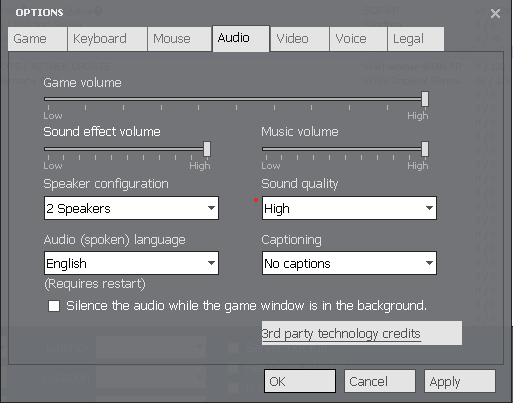
Davis
Donator-
Posts
240 -
Joined
-
Last visited
-
Days Won
14
Everything posted by Davis
-
Your Character or Steam Name: Daviss Your SteamID (Click to retrieve): STEAM_0:1:62247713 Your Discord ID#: davis3 Reason for ban: no idea i didnt break any rules Length of ban: permd from the discord Reason for appeal (dispute/apology): I didnt break any rules Why should you be unbanned? because i didnt break any rules Additional Information (images, videos, etc): n/a
-
staff members thinking this is why we dont have serious rp on a serious rp server
-
is this acc true
-
-
just make it to where we can turn all ingame music off
-
yeah they can rp sometimes but a majority of the time their rp breaks the immersion of anyone they come in contact to
-
tldr its because we don’t have a 1 crim 1 legal char system. people don’t wanna risk the stuff they have had for a while so they use alts to not risk anything major.
-
if you have 1 clip of him roleplaying on the char that doesn't involve minging or killing someone ill delete my comment
-
Your form of roleplay is wearing a kfc bucket on your head calling people broke -1 id try fivem or something to teach you how to roleplay better and then maybe you can come back after a few months
-
they probably said its not that hard to ride a horse when they invented the car it's called innovation
-
issue is you gotta keep hitting the stopsound bind i would rather just toggle it on or off
-
i have no idea what this has to do with anything cause stopsound still works it would just be nice to do one command and not have to keep hitting it
-
Uh i just want it to where I could just hit stopsound once and not have to repeatedly hit it idk why you took this personally somehow?
-
how are you guys -1ing a client side audio suggestion i just want it to where i don’t have to hit my stop sound button every minute
-
need a button or command that disables myself from hearing hifis/cassette players/the piano. Server has gotten pretty autistic with the music and having to hit my stop sound bind is getting ridiculous. pls fix the server thanks
-
server has turned into 1984 just cause they haven’t committed crimes doesn’t mean we shouldn’t be able to kill them. pls fix the server thanks
- 18 replies
-
- 11
-

-

-

-

-
get cancer
-
-1 we aren’t adding vbucks to diverge as an ic currency
-
idk abt most well known but here are my sleepers: Helmet: most dedicated roleplayers i’ve seen Gino: living enigma his roleplay goes in and out of the server Griller: fucks asian baddies icly ifykyk Little frank: single handedly carried genovese Askull: too many iconic moments to count Gun man: biggest super villain in diverge history Mayor Duke: Mayor turned terrorist Shittor: would hold women hostage in admin sits sadly he was finally deported Jaecob: Slept on roleplayer, in college now so we won’t see him for a bit
-
+1 commerce needs to innovate
-
+1 will help the server





